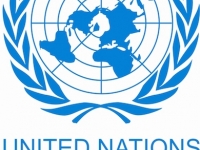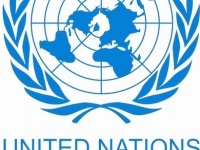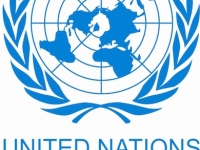Health
COUNTRIES FOCUS ON PROTECTING CONSUMERS AMID AND AFTER COVID19
ACCORDING TO UNCTAD

COVID-19 Logo (Source: WIkimedia)
USPA NEWS -
Countries have taken various steps to protect consumers as they implement measures to overcome the adverse health and economic impacts of COVID-19. At the 8th United Nations Conference on Competition and Consumer Protection slated for 19 to 23 October, ministers, heads of competition and consumer protection authorities and civil society representatives will chart the path forward in better safeguarding consumers´ welfare amid and after pandemic. The quinquennial conference is the highest-level meeting on competition and consumer protection within the UN, bringing together stakeholders from all over the world. UNCTAD is the focal point within the UN system on these two issues and offers the only platform for global international cooperation.
COVID-19 UNDERSCORES NEED FOR INTERNATIONAL COOPERATION -----------------------------------------------------
“If COVID-19 has taught us anything, it is that international cooperation in the fields of competition and consumer protection is crucial,“ said Teresa Moreira, UNCTAD´s head of competition and consumer policies. The conference is an opportunity for stakeholders to share experiences, exchange information on similar competition and consumer protection cases, improve laws and policies, generate consensus and take common positions. International cooperation on competition and consumer protection is expected to lead to more efficient use of resources at national, regional and global levels, joint case handling, more efficient investigations and more effective results. In April, UNCTAD called for firmer action to protect consumers as the first wave of the pandemic raged. Governments have since fought unfair practices such as price gouging and non-respect of refunds, and defended competition to protect consumers, prevent the distortion of markets and promote a healthy economic recovery from the pandemic. Participants at the conference will discuss how to combat cross-border cartels and improve consumer product safety around the world.
PROTECTING DIGITAL CONSUMERS----------------------------------------------------------------------------------------------------
They will also examine ways to better protect consumers in the digital era.COVID-19 has accelerated the shift towards a digital world, as people have turned to online platforms to shop, telework and connect with families and friends. Uppermost in the minds of policymakers is how to make consumer protection and competition policies fit for purpose in the digital economy.The pandemic has seen dominant online platforms benefit significantly. Stock prices and market capitalization of the world´s leading technology companies have skyrocketed.“Governments should consider regulation of these platforms to maintain competitive and open digital markets and better protect consumers,“ Ms. Moreira said. She added that legislative frameworks should address the increasing market power of the platforms to protect consumers from unfair and misleading practices.According to the UNCTAD World Consumer Protection Map, 97% of the 84 countries that responded to a related survey have a consumer protection law, with 62% addressing issues related to e-commerce.“Consumers must enjoy a level of protection online that is no less than offline,“ Ms. Moreira said. “This may mean enacting or reviewing national policies and upgrading enforcement capacities.“Another top priority is ensuring access by consumers to fair, effective, transparent and impartial dispute resolution mechanisms, particularly online.Equally high on the agenda is the need for businesses to protect consumers´ privacy through a combination of appropriate control, security, transparency and consent mechanisms related to the collection and use of their personal data. The UN guidelines on consumer protection remain a relevant tool for governments aiming to improve consumer protection in the digital era, and their implementation will be reviewed during the conference.
BOLSTERING COMPETITION IN THE MARKETS--------------------------------------------------------------------------------------
The sweeping economic impact of COVID-19 has left governments balancing between defending competition, so prices don´t become prohibitive, and granting exemptions to competition rules to ensure the survival of entire economic sectors.
Though many competition authorities have heeded the call made by UNCTAD in April and deployed various tools to limit the adverse consequences of COVID-19 in the markets, the pandemic has weakened competition globally. For instance, many undercapitalized companies from fiscally stressed developing countries now face competition from stronger foreign rivals strengthened by massive financial support from their governments´ stimulus packages. Small and medium enterprises or startups in financial difficulty also risk becoming attractive targets for acquisition by dominant firms, especially multinational companies.The pandemic has raised fears that mergers and acquisitions could increase, subsequently raising market concentration.In addition, countries might adopt trade restrictive measures to make imports more expensive and less competitive to favour domestic production in their efforts to boost economic recovery. The conference will examine how to bolster competition to keep prices low and level the playing field to continue advancing the welfare of consumers in open markets.Participants will also review the implementation of the UN set of principles on competition, which set establish rules for the control of anti-competitive practices.Further, they will consider proposed guiding policies and procedures of the principles for cooperation on competition issues among developing and developed countries. The outcomes of the conference will guide UNCTAD´s future work on competition and consumer protection, including technical assistance and capacity-building for developing countries, least developed countries and countries with economies in transition. SOURCE : United Nations Conference on Trade and Development (UNCTAD)
Liability for this article lies with the author, who also holds the copyright. Editorial content from USPA may be quoted on other websites as long as the quote comprises no more than 5% of the entire text, is marked as such and the source is named (via hyperlink).








